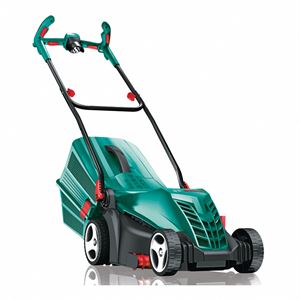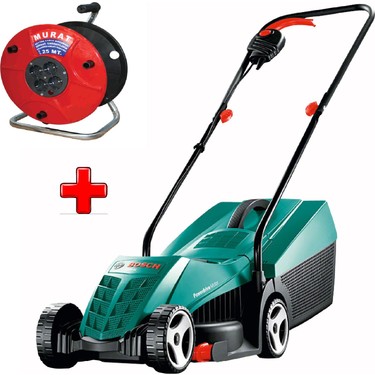Lawnmower and Things to Consider in Their Use

- Security
- Maintenance
- Moderation
- Which seed for your garden?
- The nightmare of the perfect lawn
Security
Never use the mower barefoot or in sandals. The blade can easily slice your toe. Never use it without the stone guard. Pebbles thrown at high speed can cause damage. Inspect your lawn before mowing it. Rocks or toys lying around can damage the blade.
In rough terrain, go back and forth perpendicular to the slope, not up and down. It is much less tiring. On very steep slopes, however, specialists recommend mowing uphill to avoid tipping over. It is a real risk with a heavy mower, and a fortiori a tractor.
Never handle a mower blade without having unplugged the plug or neutralized your engine (if you remove the spark plug, be careful: it gets hot with use). If you have an electric model, of course, avoid running over the line with your mower.

Maintenance
It is almost nil on manuals (a little oil on the helical blades), and very low on the electric ones. You just need to sharpen the blades from time to time. Be careful with their fastening system: it is usually a reverse lock nut.
Thermals ones are more demanding: oil level to be monitored, gasoline, annual oil change (in spring, after the first mowing), belts and spark plugs to be inspected, etc. In the fall, before storing your lawnmower for a few months, remember to drain the gas out of the tank and possibly grease the unpainted metal parts to protect them from corrosion.
Moderation
As a general rule, avoid overdoing it. If we cut more than half of the blade of grass, we weaken it; the lawn then becomes more sensitive to drought, to parasites, but also to so-called “weeds”. You will not get rid of them by mowing the lawnmower relentlessly, but on the contrary by mowing less often. Remove unwanted grass that is already tall by hand, and let your lawn take over the young shoots. When returning from holidays or after several rainy days, please pay particular attention to the cutting height: It is better to mow high the first time and return to the desired height (3 to 5 cm for a pleasure lawn) after two or even three mowings. As Raymond Devos said, “a gardener who slaughters a lawn is an aspiring murderer.”
Think of the neighbourhood: 90 dB, the sound volume of a thermal mower, that is huge. Find out what times, if any, the use of the mower is prohibited in your municipality. If you spend it at 8 am on a Sunday morning in July, your neighbours will not be impressed by your dynamism: they will just find you shameless.
Which seed for your garden?
There are several varieties of turf, usually mixed in commercially available packages. Not all of them need to be mowed at the same frequency. In general, sports field mixes are fast-growing. Perennial ryegrass is the most common seed, resistant to trampling. It reproduces in spring, but stops growing above 25 ° C. The red fescue gives a beautiful lawn but a little fragile, which likes the shade but requires for frequent mowing. The “hard sheep” variety fescue stays green in summer. Tall fescue grows fast when it has water and sun. It withstands trampling well. The pastern appreciates cold, shady corners, which makes it a possible candidate for combating moss, which you will have a hard time getting over under dense trees or in north-facing corners, for example.
As for Japanese grass, it is a mixture of plants and flowers that should not be mowed, but to be mowed twice a season. It is very popular with butterflies, grasshoppers and bees, and nicely decorates a corner of the garden.
The nightmare of the perfect lawn
Generally speaking, aiming for a perfect lawn, like a golf green, is a very ambitious goal that can turn into a nightmare. It involves overcoming harmless but recalcitrant opponents, such as dandelions, daisies, different varieties of plantain or moss. This one is particularly tough. It does not supplant the grass but occupies the space where the latter grows poorly, due to lack of light or chemical reasons. Soils that are too acidic, for example, are not suitable for it (although some gardeners do treat moss with ferric sulphate.): it dies on the spot but starts again more beautifully, because the iron sulphate acidifies the soil). Depending on the size of your garden, its exposure, the climate and the time you have available, set reasonable goals. It is often simpler to live with buttercups, moles and poppies than it is to deal with them. Wild grasses, even the dullest ones, attract birds. The molehill castings provide excellent potting soil. As for the clover, it is merely a blessing: it fixes nitrogen in the ground, which enriches it, and stays green even when water is scarce.
If you wish to buy a lawnmower from Turkey, please do not hesitate to contact us by mail at [email protected] or to call us at +90 532 361 5149. We can help you to get in direct contact with producers or provide you with everything that you need.
Please visit the company website for more information about their products. If you want to know about companies in Turkey, visit our website.


